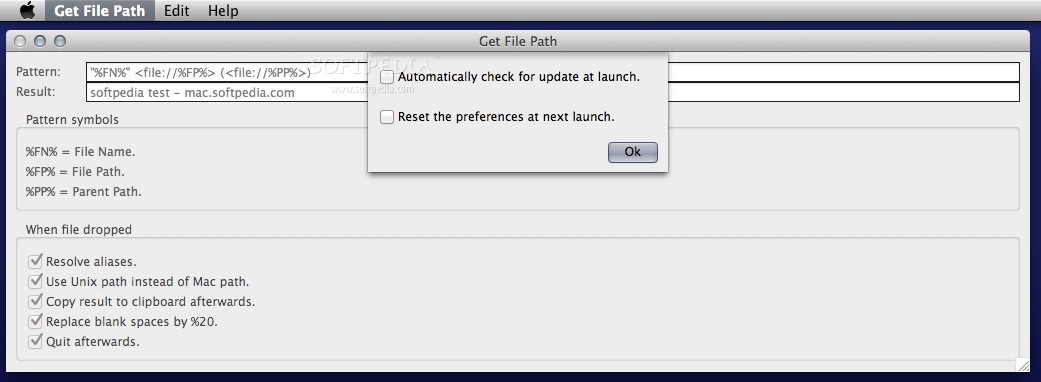
The corresponding makeAbsolute function can be found in paths, as the presence of symlinks means. Posix: normalise "bob/fred/." = "bob/fred/"Ĭontract a filename, based on a relative path. Windows: normalise "c:/file" = "C:\\file" Windows: normalise "//server/test" = "\\\\server\\test" Windows: normalise "\\\\server\\test" = "\\\\server\\test" Posix: normalise "./bob/fred/" = "bob/fred/" Posix: normalise "./bob/fred/" = "./bob/fred/" Posix: normalise "/test/file/./bob/fred/" = "/test/file/./bob/fred/" Posix: normalise "/file/./test" = "/file/test"



splitFileName :: FilePath -> ( String, String).stripExtension :: String -> FilePath -> Maybe FilePath.isExtensionOf :: String -> FilePath -> Bool.replaceExtensions :: FilePath -> String -> FilePath.splitExtensions :: FilePath -> ( FilePath, String).addExtension :: FilePath -> String -> FilePath.replaceExtension :: FilePath -> String -> FilePath.splitExtension :: FilePath -> ( String, String).Naming Files, Paths and Namespaces (Microsoft MSDN) Here are a few examples of using the filepath functions together:Įxample 1: Find the possible locations of a Haskell module Test imported from module Main: [ replaceFileName path_to_main "Test" ext | ext "interface" ( takeFileName file - "hi") We can use the following functions to extract pieces.Īnd we could have built an equivalent path with the following expressions:Įach function in this module is documented with several examples, Given the example FilePath: /directory/file.ext
#Get file path windows
A library for FilePath manipulations, using Posix or Windows filepathsīoth and provide the


 0 kommentar(er)
0 kommentar(er)
